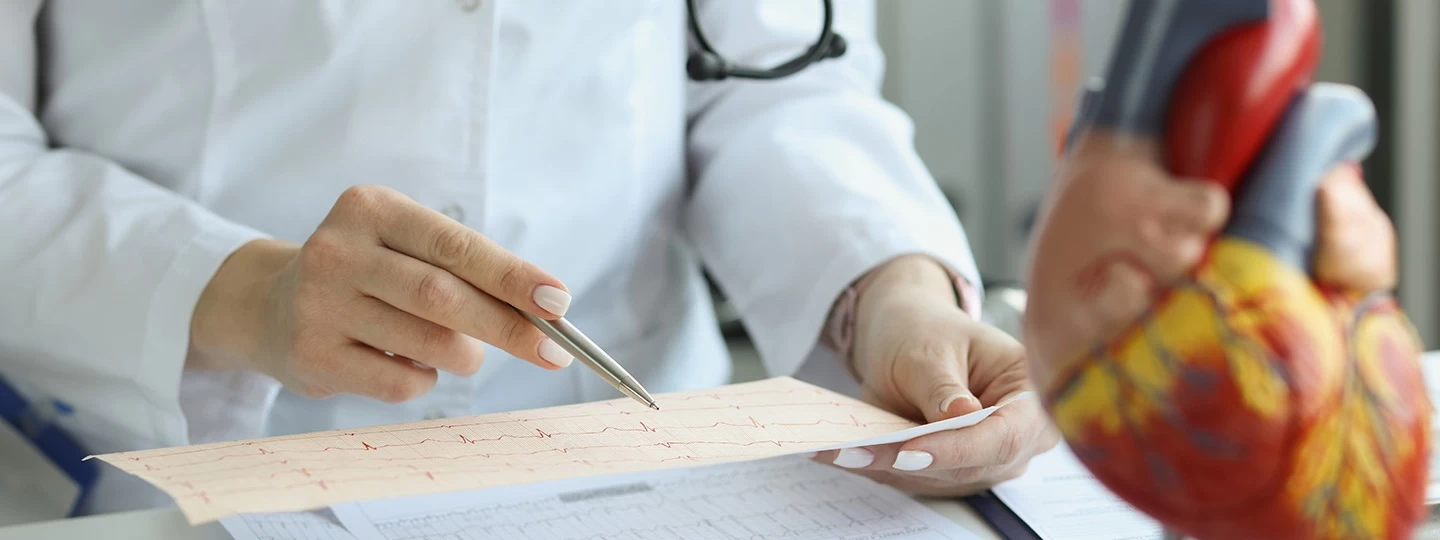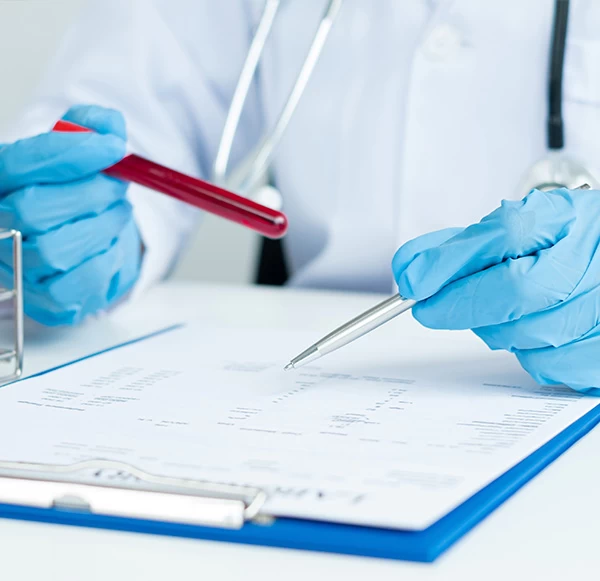- Email Us

Public health estimates indicate that India accounts for approximately 60% of the world’s heart disease burden. This staggering figure highlights a deeper problem that many heart conditions progress silently until they become emergencies. Subtle imbalances in cholesterol, sugar, or inflammation quietly damage the arteries for years. Regular screening can detect these silent threats before they turn serious.
According to the Global Burden of Disease Study's (2010) age-standardized estimates, nearly a quarter (24.8%) of all deaths in India are attributable to cardiovascular diseases (CVDs). This makes early detection critical, and pathology tests play a key role.
If you are searching for your nearest pathology lab for preventive heart checkups, these seven diagnostic tests can reveal hidden risks early and guide timely care.
Small abnormalities in blood and imaging reports often appear long before symptoms do. You can go for the following seven tests listed below to identify cardiovascular stress, inflammation, or structural changes that can lead to heart disease if ignored:
Are you experiencing unusual fatigue, chest discomfort, or other signs that could indicate heart or circulation issues? A lipid profile test can help. It measures cholesterol and triglycerides in your blood. Cholesterol forms the outer layer of cell membranes. It is also required to produce steroid hormones, vitamin D and bile acids. When levels rise, cholesterol deposits inside the arteries and reduces blood flow.
Elevated LDL (bad cholesterol) or triglycerides indicate plaque buildup inside arteries.
Low HDL (good cholesterol) reduces protection against atherosclerosis.
Over time, this imbalance leads to coronary artery disease, chest pain, or stroke.
Tip: Include this test in your routine screening. For convenience, you can compare the lipid profile test cost at different centres and book a test accordingly. It helps your doctor decide if lifestyle changes or medication are needed to control cholesterol levels.
High sensitivity CRP test measures inflammation in your blood, whereas the Coronary Artery Calcium (CAC) scan shows calcium buildup inside your coronary arteries. Hardened arteries reduce blood flow and raise the risk of angina or a heart attack.
A raised hs-CRP value indicates chronic inflammation in your arteries. Inflammation makes the arterial lining unstable and more likely to form plaque.
The CAC scan identifies hardened or calcified plaque, even when your cholesterol appears normal. Calcium deposits suggest the presence of early atherosclerosis.
Tip: Consider both tests if you have a family history of heart disease or unexplained chest discomfort.
HbA1c measures how much sugar has attached to your red blood cells over the last few months. It helps your doctor see how well your blood sugar is controlled.
High HbA1c levels suggest poor sugar control.
Excess glucose stiffens arteries and reduces their elasticity. This accelerates heart damage and raises the risk of stroke.
Tip: Check HbA1c regularly if you have diabetes or metabolic syndrome. You can schedule it through a blood test at home Delhi services for convenience.
These are advanced cholesterol markers that assess deeper cardiac risk. ApoB measures harmful cholesterol particles. Lipoprotein(a) identifies inherited cholesterol that increases early heart disease risk.
High ApoB means your blood contains too many cholesterol particles that can enter artery walls.
High Lipoprotein(a) is usually inherited and raises the risk for plaque buildup.
Tip: Ask your doctor for these tests if you have a strong family history of heart disease or early heart attacks. You can even book a lab test online.
This test measures small amounts of troponin in your blood. Troponin is a protein released when heart muscle cells are injured or under stress.
Even a mild increase suggests your heart muscle is struggling, possibly due to high blood pressure, poor oxygen supply, or early coronary changes.
Continuous elevation signals early myocardial injury, even when symptoms are absent.
Tip: If you experience frequent tiredness, chest heaviness, or breathlessness, ask your doctor if you need this test.
An ECG records the electrical activity of your heart. It helps your doctor detect rhythm disturbances and identify strain on heart chambers.
Abnormal ECG patterns show arrhythmias, heart enlargement, or reduced oxygen delivery to the heart muscle.
Even small irregularities can reveal underlying artery narrowing or early ischemia.
Tip: You should take an ECG if you feel palpitations, irregular beats, or unexplained fatigue. It is a simple, painless test that takes only a few minutes.
A stress test measures how your heart responds to physical effort. You walk on a treadmill while your heart rate, blood pressure, and ECG are monitored.
If your heart struggles to maintain normal rhythm or oxygen levels during exertion.
It indicates restricted blood flow to the coronary arteries. This may suggest underlying blockage or poor cardiac endurance.
Tip: Doctors recommend this test if you have mild chest pain, shortness of breath during activity, or borderline lipid and sugar results.
Heart protection begins with awareness. Our preventive checkups combine these 7 tests to give you a clear picture of your heart health. You can even schedule a test at the best lab for blood test in Delhi NCR for convenience. Every test is handled with precision and reviewed by expert pathologists and radiologists.
Choose proactive care instead of reactive treatment. A few simple tests today can prevent serious complications tomorrow. Visit Mahajan Imaging & Labs, your trusted nearest pathology lab for complete, budget-friendly cardiac screening and early detection support.
Also read: The Importance Of Regular LFT And RFT Tests




